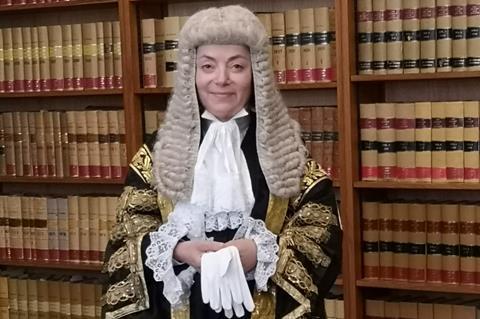A barrister undergoing pupillage did not appreciate the seriousness of citing cases that did not exist, the High Court heard this morning.
The hearing before Dame Victoria Sharp, president of the King’s Bench Division and Mr Justice Johnson was ordered by Sharp over two separate cases in which non-existent authorities were cited. The judges will consider whether to initiate contempt of court proceedings.
This morning, the case of Frederick Ayinde v The London Borough of Haringey was discussed in which Sarah Forey, instructed by Haringey Law Centre, was found to have cited false authorities.

For Forey, Helen Evans KC of 4 New Square told the court that Forey was, at the material time, a pupil barrister and was given probationary tenancy at 3 Bolt Court in May this year. Forey, who is dyslexic, did not have access to LexisNexis or other research materials, or the White Book when researching cases and had developed ‘over time’ a ‘workaround’ when researching and putting together information which she added to a table.
The table, the court heard, had since been deleted by Forey on advice from a ‘senior member of chambers’ and had not been recovered.
‘In order to support the work she was doing, she researched principles and authorities’ using a number of different websites and ‘various online legal blogs and websites’, Evans said. ‘She used these sites to find cases and legal principles and added them to her personal table. She would also use search engines such as Google and Safari to search legislation. Miss Forey says she did that in relation to her table when she drafted the grounds for Ayinde.
‘Although she did not know she had used AI facilities by which she means ChatGPT, she now understands Google and Safari will sometimes produce AI commentary or overview.
‘It did not register with her that it was AI-generated.’
The court heard Forey ‘received little supervision’.
Evans added: ‘Miss Forey’s perception is that she was effectively left to her own devices. [She was] inadequately supervised and inadequately resourced as well in terms of what was made available or not made available to her to do her work. She had no access to anything like LexisNexis or online databases or textbooks.’
The court heard Forey ‘completely underestimated the importance and seriousness of what was being said’ when a letter was sent by the council questioning some of the authorities cited by Forey. Forey was ‘of the view those cases [flagged by the council] would be locatable’.
Evans said: ‘Miss Forey accepts with the benefit of hindsight [it] was the wrong way to go about it but she did not appreciate it at the time.’
Evans said Forey did not appreciate the seriousness of citing authorities that did not exist when the principles were correct. She added: ‘To put it more colloquially, as long as the tin existed and had the right content, the label on the tin was not a serious matter. The fact she had named a case she could not find was not a matter she regarded as serious. She thought there would be alternative authorities for those positions. She was confident her table was correct when she had drawn it up.
‘The seriousness of the matter just had not registered with her.’
The court heard Forey had reported herself to the Bar Standards Board following Mr Justice Ritchie’s judgment in April in which he found five fake cases to have been cited. Evans said the BSB was the appropriate forum to deal with Forey’s conduct.
She added: ‘Miss Forey has asked me to finish by repeating her apology.’
Andrew Edge, for Haringey Law Centre which instructed Forey, said the centre was an ‘overstretched charitable resource doing its very best with a lack of any resources…doing incredibly important work and only able to do that important work by being heavily dependent on counsel’. He told the court that the Solicitors Regulation Authority ‘is already investigating’ and the regulator had ‘all the powers to deal with’ the conduct. ‘It would be disproportionate to do more,’ Edge added.
The hearing continues.





























